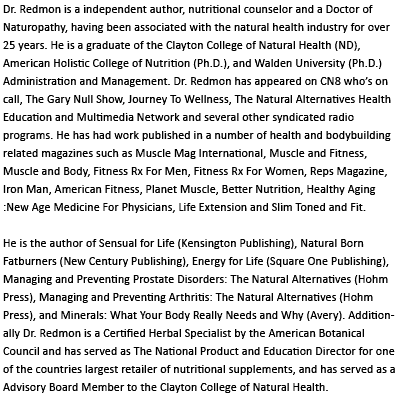The fact is, water is the real X – Factor. As products come and go and your eating habits change and your muscle mass and tone increases, the internal anabolic( growth and repair) equilibrium that you have attained can’t be maintained without the presence of proper internal water levels. In fact,without adequate intake of this nutrient, you are not only compromising reaching your full fitness and health potential, you may also be jeopardizing your wellbeing.
Quiet Please Water at Work
As you are probably aware of up to 45% to 75% of your weight and internal make-up is of water. A muscular person has a larger portion of water in their body than someone who is overweight or obese, as fat is almost water free. In fact , 75% of your muscle tissue is water. Sorry ladies, because of your physiological predisposition, (more body fat), you have less water than men (55%). Fluid is distributed in the body between the extra cellular compartments (fluid in spaces outside cell) and the intracellular compartments (fluids inside the cell).
Water is considered the universal or complete nutrient because most of the essential nutrients ( carbs, fat and protein )you could live without for days, even weeks and months. However, without water for just a few days or more you would die. This occurs as a direct result of changes in the fluid concentrations within the intra and extra cellular compartments of the cell. For example, a10% loss of fluid (4 liters) is considered serious, while a 20% loss of fluid (8 liters) is usually fatal. Thus the importance of adequate water intake to prevent low water levels known as dehydration.
The Dark Side of Dehydration
Unfortunately, there isn’t a bright side of dehydration that you should be searching for, except it’s warning signs. Dehydration occurs when the amount of water leaving the body is greater than the amount being taken in. One of the first responses to dehydration is your thirst signal ringing off the hook, deploring you to seek water. At this stage the body shifts to panic mode and begins to decrease urine output to put the brakes on any further water loss. A usual tale- tale sign of this is a dark color to your urine with a strong odor. You should be aware of these subtle signals and replenish lost water, before the body hits the 911 button and you begin to experience more dangerous warning signs like: decreased sweating, loss of tear drops from your eyes, muscle cramps , nausea and vomiting , lightheadedness, ( especially when standing), general weakness, difficulty swallowing, painful urination, clumsiness, blurred vision, delirium and or heart palpitations.
Dr Benjamin Wedro, MD, who is a Clinical Professor of Medicine at the University of Wisconsin-Madison, states that when dehydration reaches this point, the body seeks to maintain cardiac output ( the amount of blood pumped by the heart to the body). If the amount of fluid in the intravascular space is decreased, to compensate the body up-regulates the heart rate to contract blood vessels in a attempt to maintain blood pressure and blood flow to vital organs. If dehydration continues, confusion, shock, and weakness begin to occur as the brain and other organs blood deprivation heightens. Left unchecked coma and death could occur.
A Important Note: sweat loss can vary from 16 ounces to three quarts during each hour of exercise.
Maintaining Homeostasis
According to Brenda Bigelow-Kemp, a Associate Professor of Nursing at D’Youville College in Buffalo, and Adele Pillitteri, a Professor at the College of Nursing at Niagara University, water balance in the body depends on the body’s ability to maintain equilibrium in the face of disturbances in water intake and output. These researchers remind us that water intake not only occurs orally, but also from solid foods and the metabolism (breakdown) of food which also yields water. In fact both fat and carbohydrate metabolism release about 100 ml of water for each 100 grams consumed. Protein on the other hand produces about 40 ml of fluid for each 100 grams of protein consumed.
Please Note: For those of you involved in activities like bodybuilding or similar sporting events where large amounts of food are consumed (such as protein) understanding the above ratios are vital in your efforts to maintain homeostasis.
Performance Issues
Contrary to popular belief water has a profound impact on improving muscle strength. Well hydrated muscles in studies show increased ability to enhance maximum lift capacity for extended periods of time, versus dehydrated muscles. A mere 3% decline of water in muscles equates to a reduction of 10% in muscle strength. A 4% reduction of water levels have been associated with a 30% reduction in performance capacity. Water can also increases the body’s metabolic rate by up to 30% which ignites the fat burning process as well as flushing the kidneys of toxins.
This lessens the burden of the liver to detoxify and is extremely important as this allows the liver to spend more time on metabolizing body fat. Water facilitates muscle growth by transporting nutrients and other growth factors like hormones to the muscle. Water adds form to your muscle size, its tightness, strength and boost energy levels. One of the most important benefits of maintaining proper water levels for bodybuilders is the fact water inhibits muscle loss. Remember, water is found in the highest concentration in metabolically active tissue like muscle . The lowest levels of water are found in fat, skin, and some parts of bone,.
Water Losses
Generally, the body looses two to three quarts of water daily from urinating, defecation, sweating, and water vapor expelled during respiration. Generally , during a normal workout session , you can lose more than 10 cups of water. In fact sweat losses can vary from 16 ounces to 3 quarts during each hour of your workout session. Water losses can also occur while taking medications and even at times of stress or illness. Fever, diarrhea, and vomiting, are examples of common ailments that will cause further losses of water beyond that of generalized everyday occurrences. Certain beverages like soda, coffee, tea and other caffeine beverages have a diuretic effect on the body and cause further losses of water. These drinks shouldn’t be considered in your calculation of proper fluid intake.
The key here is to balance your fluid intake to offset water losses, especially, during physical activities. Over consumption or over hydration, drinking too much water ( hyponatremia, commonly referred to as water intoxication) can cause as much harm as not being hydrated enough. This increase of intracellular water concentration can cause water to move out of the blood plasma, ultimately reducing blood volume in the body as a result of imbalances in sodium and potassium concentrations. This can lead to circulatory shock as the minerals sodium(salt) and potassium regulate the correct ratio of water within and outside of the cell. As a point of reference here, symptoms outlined above in reference to dehydration, are very similar to the signs and symptoms of hyponatremia or water intoxication.
Drink and Eat the Right Stuff
As previously cited, sodas, coffee, tea, and alcoholic beverages are not viable options, to replacing fluids. Certain foods like vegetables and fruits, as well as others are good sources, providing both water and natural sodium to cellular structures. Also, follow suggested daily water consumption levels as cited within this report. For individuals engaged in heavy physical workouts , the World Health Organization ( WHO) suggest consuming electrolyte drinks to prevent hyponatremia . Researchers there maintain that the best combination of electrolytes mixed in a liter of water contains:
•20 grams of glucose
•3.5 grams sodium chloride
•2.9 grams trisodium citrate
•1.5 grams potassium chloride
Water Requirements
The most generally recognized rule is to consume at least eight glasses of water daily to maintain homeostasis. More recent data however suggest that daily fluid intake should be one-half your total body weight. Climate, humidity, illness and other factors can increase the above listed intake levels, as well as the suggested daily intake levels cited below:
If you weigh… |
And you are female, you may contain… |
And you are male, you may contain… |
Suggested Fluid Intake |
In 8 ounce Glasses |
80 Pounds |
44 Pounds of Water |
52 Pounds of Water |
40 Ounces |
5 Glasses |
100 Pounds |
55 Pounds of Water |
65 Pounds of Water |
50 Ounces |
6 Glasses |
120 Pounds |
66 Pounds of Water |
78 Pounds of Water |
60 Ounces |
7 Glasses |
140 Pounds |
77 Pounds of Water |
91 Pounds of Water |
70 Ounces |
8 Glasses |
160 Pounds |
88 Pounds of Water |
104 Pounds of Water |
80 Ounces |
10 Glasses |
180 Pounds |
99 Pounds of Water |
117 Pounds of Water |
90 Ounces |
11 Glasses |
200 Pounds |
110 Pounds of Water |
130 Pounds of Water |
100 Ounces |
12 Glasses |
220 Pounds |
121 Pounds of Water |
143 Pounds of Water |
110 Ounces |
13 Glasses |
240 Pounds |
132 Pounds of Water |
156 Pounds of Water |
120 Ounces |
15 Glasses |
The ACOSM Recommendations
The American College Of Sports Medicine recommends consuming 14 to 22 ounces of water prior to workouts, 6 to 12 ounces of water every 15 to 20 minutes during exercise and 16 to 20 ounces for every pound of body weight lost during your workout. Hence the need to weigh yourself before and after your workouts.
Last Words
Water is rarely is referred to as a agent that sustains anabolic drive. However, it is nature’s X-factor, the stuff that is absolutely necessary to sustain what could be referred to as your innate (inborn) anabolic equilibrium or potential. Past, present and emerging data clearly shows that to reach and sustain your anabolic goals, you must reload your internal pool of water judiciously. The fact is 75% of your muscle tissue everywhere is nothing but plain old water! More importantly your performance, recovery and your health depend on the presence of correct internal levels of this misunderstood and underutilized anabolic compounds .

 Come on , water is water, what’s to know. It keeps me hydrated and must be replaced after a workout. It doesn’t have any other bearing on the outcome of my training, and definitely has no bearing on my ability to burn body fat and or gain any additional lean muscle mass. Water intake also has no influence on my recovery and doesn’t get nutrients into my muscle cells faster like many of the newer formulated products on the market today. Furthermore, water definitely has nothing to do with minimizing or delaying the muscular and mental fatigue associated with exercise induced stress and oxidation or what researchers call DOMS (delayed onset muscle fatigue). So come on, were not talking about many of the popular fat-burners like lipo-six ( for women) green tea and or protein here, we’re talking about plain old water
Come on , water is water, what’s to know. It keeps me hydrated and must be replaced after a workout. It doesn’t have any other bearing on the outcome of my training, and definitely has no bearing on my ability to burn body fat and or gain any additional lean muscle mass. Water intake also has no influence on my recovery and doesn’t get nutrients into my muscle cells faster like many of the newer formulated products on the market today. Furthermore, water definitely has nothing to do with minimizing or delaying the muscular and mental fatigue associated with exercise induced stress and oxidation or what researchers call DOMS (delayed onset muscle fatigue). So come on, were not talking about many of the popular fat-burners like lipo-six ( for women) green tea and or protein here, we’re talking about plain old water

